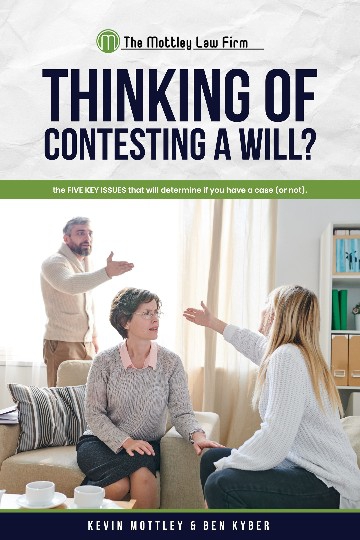A will is a writing that expresses a person’s intent as to how their property is to be handled when they die. To be valid and enforceable, a will must comply with the requirements of a will as stated by the General Assembly in the Code of Virginia, as interpreted by the Supreme Court of Virginia.
In most situations, a will created by a person is valid and will be enforced by the courts. In some situations, however, doubt exists as to whether the document being put forward is truly the person’s last will and testament. In our law practice, we have seen all sorts of situations that call into question the validity of a will. When a dispute exists over the validity of a will, it is necessary to have a court determine the validity of the will, and to decide what is the person’s will.
The Supreme Court of Virginia has recognized several grounds under Virginia law for contesting a will that has been admitted to probate. Wills in Virginia may be challenged and successfully contested (impeached) when evidence shows the will was procured by fraud, the will was not properly executed by the decedent (or was not executed at all by the decedent), the will was not properly witnessed, the document admitted to probate does not comply with Virginia’s will statute, the will was procured through undue influence, the person executing the will lacked testamentary capacity, or the will had been previously revoked by the decedent.
Here at The Mottley Law Firm, we have experience defending wills that are being contested, and we have experience contesting wills that have been admitted to probate. If you are involved in a situation involving a will that you suspect does not reflect the true intentions of the decedent, or that you suspect is not the decedent’s true will, you should consider consulting with an attorney who is experienced in estate litigation.
Challenges to Contesting a Will 
Will contest cases are difficult, especially for the person trying to challenge, or “impeach,” a will that has been admitted to probate and that complies with the technical requirements of Virginia’s will statute. Challenging the testamentary capacity of a decedent who made the will places the burden upon the party who is challenging it to prove their case. That is not an easy burden to meet in most cases. The same can be said for claims that a will was procured through “undue influence.” The reality is that most wills are created as the result of some sort of “influence” on the decedent. For the influence to be of the sort that will overturn the will, however, it must have been “undue” under Virginia law.
If you would like to discuss a situation involving a will with us, please call us at the number provided on this website or complete a contact form found on this page. If we think your situation is one in which we can help, we will be happy to schedule an initial consultation with you.
For will contest cases and other family estate cases, we offer initial consultations for a fixed fee of $500. As part of the initial consultation, you will get up to one hour of our attorney’s time to discuss your situation with you, and you will receive some initial guidance from us as to what Virginia law says about your situation in our opinion. In most cases, this initial consultation results in the matter not proceeding further.



